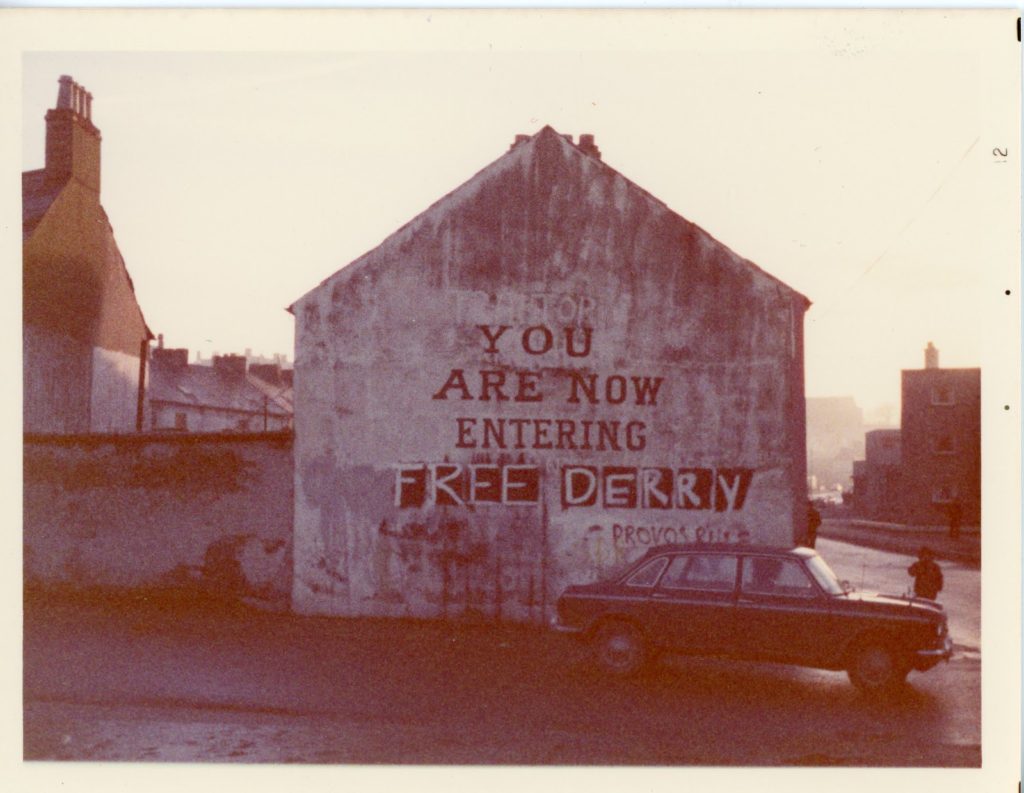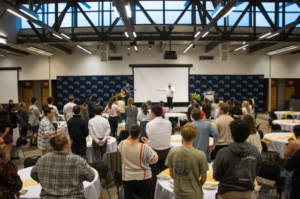Speaker Recounts Violent History of Northern Ireland County, Looks Towards Future
By Abby Anderko
Tensions between Northern Ireland and the Republic of Ireland have been on the rise as “Brexit” has the ability for major ramifications on relationships between the two parts of Ireland since the 2017 announcement of Britain and the United Kingdom’s exit from the European Union.
Before the Brexit issue began, relations between Northern Ireland and the Republic of Ireland were already tense. Towns within Northern Ireland have been described as war zones, filled with staggering opposition on everything from religion to political ideology, creating stark contrast between loyalists to Britain and patriots who desired for one united Ireland. This violent, militaristic state was especially seen in the county of Derry.
These troubles were seen first-hand by speaker John Emond, a retired NASA collaboration program manager, who gave a lecture to Catholic University students and faculty on his personal experience with this violence on October 10 in Hannan Hall.
In January 1973, Emond, as a history student at Clark University, was immersed into Derry’s turbulent culture while studying abroad with a host family. He recalled many stark differences in lifestyle from his childhood in the suburbs of Boston, with aspects including British army checkpoints and armored cars on every street and regular Irish Republican Army (IRA) campaigns wrecking economic havoc with car bombs attacks on businesses.
These attacks, he recalled go to the point where they became so common place they were second nature. He explained that the longer he was there, the bomb scares became more of a nuisance rather than frightening, like a person sitting in traffic. “That is when it becomes scary,” said Emond, “when you begin to try to take for granted things you shouldn’t take for granted.”
Emond said that in his first trip to Derry in 1973, he was a sponge, soaking up all the information he could, but on his return in 1974, he was there to give back to Derry. From his first visit in 1973 to his most recent in 2016, Derry has transformed from a war zone to a popular tourist hotspot.
Irish language professor Art O’Suilleabhain, who attended the lecture, remarked that he truly engaged with the second part of the lecture where Emond compared the differences between Derry then and Derry today. But, O’Suilleabhain, as a native Irish speaker, wished that Emond would have covered more on the barrier of the Irish language. “This is a huge political divide on the linguistics” O’Suilleabhain said.
He continued saying that today, “the social history is very much engaged with the linguistics now, because this is what the debate in the north is about at the moment; whether the Irish language should become an actual recognized language in the North.”
Gregory Baker, the Assistant Professor of English, Director of Irish Studies, said that Emond lecture “addressed the fact that the memory of the “Troubles” [violent times] remains very much alive in the landscape of Derry.”
Emond stressed the importance of the next couple years, as the country could once again slip back into its violent history, as the peace between the North and the Republic is being stressed. After the centennial of Ireland’s War for Independence and the finalization of Brexit in 2019, 2021, the centennial year of Northern Ireland’s separation and the potential implementation of border control will be a culminations of tensions.







